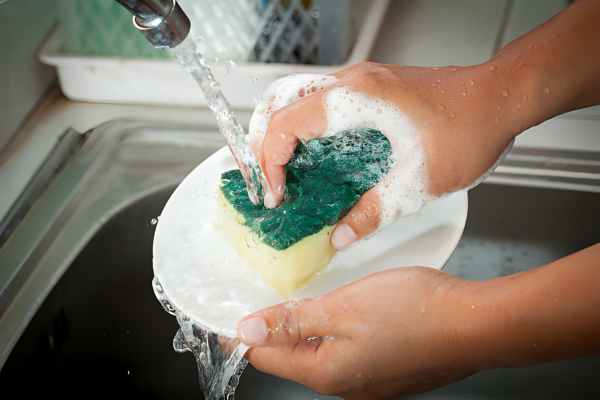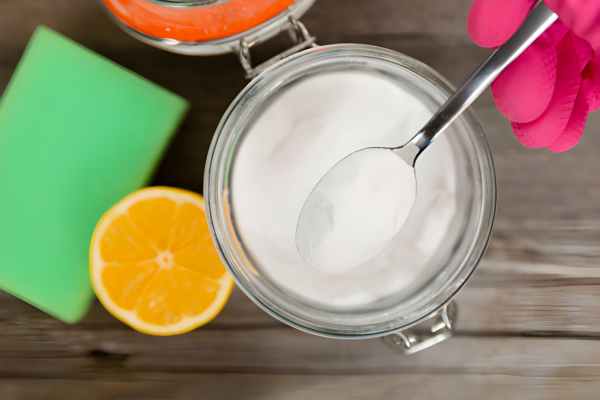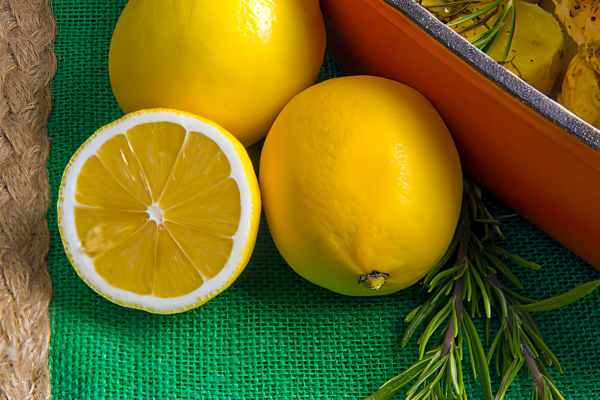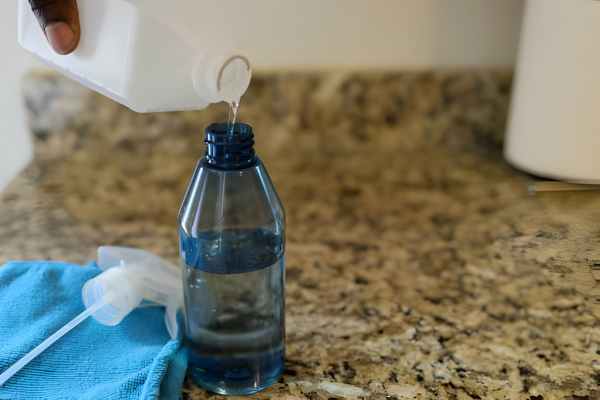Tired of the unmistakable scent of vinegar lingering in your kitchen after cleaning your dishwasher? You’re not alone. While vinegar is a popular and effective natural cleaner, its pungent odor can be off-putting, especially when it seems impossible to eliminate. Fortunately, there are alternative methods for keeping your dishwasher sparkling clean and odor-free without the need for vinegar. In this article, we’ll explore innovative techniques and products that will revolutionize the way you maintain your dishwasher
What is a good homemade dishwasher cleaner?
A good homemade dishwasher cleaner can be made using simple ingredients like white vinegar and baking soda. To create a cleaning solution, mix equal parts of white vinegar and baking soda to form a paste. Apply this paste to the interior of your dishwasher, focusing on areas with built-up grime or hard water stains. Let it sit for about 15-20 minutes, then scrub with a brush or sponge before running a hot water cycle to rinse away the residue.
Another effective homemade dishwasher cleaner can be made using citric acid. Mix 1 cup of citric acid with 1 cup of baking soda and use this mixture as a natural alternative to commercial dishwasher detergents. Citric acid helps break down mineral deposits and grease while deodorizing the dishwasher, leaving it clean and fresh.
How does hydrogen peroxide clean dishwashers?
Hydrogen peroxide can effectively clean dishwashers due to its powerful antibacterial and disinfectant properties. When used in the dishwasher, hydrogen peroxide helps to break down and remove organic matter, grease, and food residues that can accumulate over time. It also helps to sanitize the interior of the dishwasher, killing germs and bacteria that may be present.
To use hydrogen peroxide for cleaning dishwashers, simply pour a small amount (about 1/2 cup) into the bottom of the dishwasher and run a hot water cycle. The hydrogen peroxide will help to loosen and lift away stubborn stains and odors, leaving your dishwasher clean and fresh. Additionally, it is an eco-friendly alternative to harsh chemical cleaners, making it a safe and effective option for maintaining a clean dishwasher.
Factor to Consider How To Clean Dishwasher Without Vinegar
Type of Dishwasher Interior
First off, check if your dishwasher has a stainless steel or plastic interior. Some cleaners, like bleach, are a big no-no for stainless steel as they can damage or discolor it. For plastic interiors, you have more flexibility with cleaning agents.
Level of Cleaning Needed
Think about how dirty your dishwasher is. If it’s just a bit of grime and odor, a simple baking soda scrub might do the trick. But if you’re dealing with tough stains or mold, you might need something stronger, like hydrogen peroxide or a bleach solution (only for non-stainless steel interiors).
Safety and Chemical Sensitivities
Always consider the safety of the cleaning products you use. If you’re sensitive to strong chemicals, opt for natural cleaners like citric acid or Borax. And always keep the space well-ventilated.
Frequency of Cleaning
How often you clean your dishwasher can influence what method you choose. For regular maintenance, gentle cleaners are best. But for a deep clean, which you might do less frequently, you can use stronger agents.
Effectiveness against Specific Issues
Certain problems need specific solutions. For instance, if you have hard water deposits, citric acid is a great option. For odors, baking soda works well. And for disinfecting, hydrogen peroxide is a great choice.
Here Are Some Ideas on How To Clean Dishwasher Without Vinegar

Clean your dishwasher without relying on vinegar, there are several effective options to consider. First, try using baking soda as a natural and powerful cleaner. Simply sprinkle a generous amount of baking soda across the bottom of the dishwasher and run a hot water cycle to help scrub away grease and grime. Another option is utilizing citric acid, which can be found in many commercial dishwasher cleaning products or as a standalone powder. Citric acid works by breaking down mineral deposits and stubborn stains within the machine, leaving it sparkling clean.
For those who prefer eco-friendly options, consider using hydrogen peroxide as a non-toxic alternative to vinegar. Mixing half a cup of hydrogen peroxide with water can create a potent cleaning solution that effectively removes odors and sanitizes the interior of the dishwasher. Additionally, incorporating essential oils such as lemon or orange into your cleaning routine not only leaves a refreshing scent but also provides antibacterial properties that aid in thoroughly cleansing the appliance.
Baking Soda Scrub

A baking soda scrub not only works wonders for exfoliating and refreshing your skin, but it’s also a powerful cleaner for various household tasks. When it comes to cleaning the dishwasher without vinegar, a simple yet effective solution is a baking soda scrub. Its gentle abrasiveness can help remove built-up grime and odors without damaging the dishwasher’s interior.
What sets the baking soda scrub apart from other cleaning methods is its natural deodorizing properties. By combining baking soda with water to form a paste, you can easily target tough stains and residue in your dishwasher without relying on harsh chemicals or overpowering scents. Additionally, this DIY approach not only saves money but also promotes eco-friendliness by reducing reliance on commercial cleaning products.
Lemon Kool-Aid Trick

The Lemon Kool-Aid trick is a surprising solution to the age-old problem of cleaning your dishwasher without relying on vinegar. This unconventional method involves emptying a packet of lemon Kool-Aid drink mix into the detergent compartment of your dishwasher and running it through a normal cycle. The citric acid in the Kool-Aid helps break down mineral deposits, grease, and grime, leaving your dishwasher sparkling clean and free from unpleasant odors.
Many people are drawn to this method because it delivers impressive results without the strong smell or harshness of vinegar. Plus, using Lemon Kool-Aid adds a refreshing scent to your dishwasher, so every load of dishes comes out smelling delightful. It’s an affordable and accessible alternative for those who prefer not to use vinegar in their cleaning routine. With this clever hack, you can say goodbye to buildup and ensure that your dishwasher continues working efficiently for years to come.
Bleach Run

Many people swear by the effectiveness of using bleach to tackle tough limescale and grime buildup in the dishwasher. To perform a bleach run, simply pour about half a cup of bleach into the bottom of an empty dishwasher and then run it on a hot water cycle. The bleach will help to disinfect and sanitize the interior, leaving it sparkling clean without any lingering vinegar smell.
One benefit of using a bleach run is that it can be especially effective for dealing with persistent stains or odors that may not respond well to other cleaning methods. Additionally, incorporating this method into your regular maintenance routine can help extend the lifespan of your dishwasher and prevent potential issues down the line. However, it’s important to exercise caution when using bleach, as it can be harsh and may not be suitable for all dishwashers or materials. Always consult your dishwasher’s manual and follow safety guidelines when using bleach for cleaning.
Salt and Baking Soda Mix

Look no further than the winning combination of salt and baking soda. This dynamic duo is not only effective for cleaning, but it can also help eliminate odors, leaving your dishwasher smelling fresh and clean. Simply mix equal parts salt and baking soda to form a paste, then apply the mixture to the interior surfaces of your dishwasher. Let it sit for about 15-20 minutes before wiping it away with a damp cloth. Not only does this method effectively remove grime and grease, but it’s also gentle on your appliance.
The beauty of using salt and baking soda is that they are readily available in most kitchens, making them convenient alternatives if you’re out of vinegar or looking for a more natural way to clean. This powerhouse combination not only gets the job done but does so without any harsh chemicals or residues that could potentially impact your dishes or health. Embracing this approach not only helps maintain a clean and odor-free dishwasher but also supports environmentally friendly cleaning practices.
Borax

Cleaning your dishwasher without vinegar, borax is a true hidden gem. Its natural cleaning properties make it an ideal alternative for tackling tough stains and residue inside your machine. Simply sprinkle a cup of borax into the bottom of the dishwasher and let it sit for an hour before running a hot water cycle. This will help break down grease, grime, and mineral buildup, leaving your appliance sparkling clean without the strong smell of vinegar.
Borax can also help prevent musty odors in your dishwasher by eliminating bacteria and mold growth. By using borax regularly in your dishwasher maintenance routine, you can ensure that your dishes come out spotless and free from any unpleasant smells. With its versatility and effectiveness as a natural cleaner, borax offers a powerful solution for those looking to maintain a clean and fresh-smelling dishwasher without relying on traditional vinegar-based methods.
Hydrogen Peroxide

Hydrogen Peroxide is a versatile cleaning agent that can be used as an alternative to vinegar when cleaning your dishwasher. Its powerful oxidizing properties make it effective at dissolving organic matter, removing tough stains, and killing bacteria and viruses. To clean your dishwasher with hydrogen peroxide, simply pour a cup of the solution into the bottom of the machine and run a hot water cycle. The hydrogen peroxide will help to sanitize and deodorize the interior while breaking down any built-up residue.
One of the main advantages of using hydrogen peroxide over vinegar is its ability to kill more types of germs, including bacteria and viruses. This makes it an excellent choice for disinfecting your dishwasher and ensuring that it remains hygienic for everyday use. Additionally, hydrogen peroxide does not leave behind a strong odor as vinegar does, making it a more pleasant option for cleaning appliances.
Citric Acid Powder

Citric acid powder is a versatile and effective cleaning agent that offers a powerful alternative to vinegar when it comes to maintaining the cleanliness of your dishwasher. With its natural acidity, citric acid powder can effectively eliminate limescale, mineral deposits, and soap scum that may build up in your dishwasher over time. By simply adding a small amount of citric acid powder to your empty dishwasher and running a hot cycle, you can achieve sparkling clean results without the strong smell associated with vinegar.
Citric acid powder also serves as an environmentally-friendly option for cleaning your dishwasher without the use of harsh chemicals. Its gentle yet potent properties make it suitable for regular maintenance and can help extend the lifespan of your appliance. In addition, unlike other commercial cleaning products, citric acid powder is non-toxic, making it safe for use around food preparation areas and in households with children or pets.
Denture Tablets

Denture tablets, often overlooked as household cleaning agents hold fascinating potential beyond just cleansing false teeth. These effervescent tablets might be the answer to your dishwasher cleaning woes. Simply drop a denture tablet into the dishwasher, run it on a hot cycle, and watch in awe as it effortlessly dislodges grime and mineral deposits. The fizzing action helps break down tough stains and eliminates unpleasant odors, leaving your dishwasher sparkling clean without the need for vinegar.
The versatility of denture tablets doesn’t stop there. Their gentle yet effective cleaning properties make them ideal for tackling stubborn residues in coffee pots and tea kettles. For those seeking an alternative to harsh chemical cleaners, denture tablets provide a natural and cost-effective solution. Embracing these unassuming little tabs can open up a whole new world of household cleaning possibilities, proving that sometimes the most unexpected products hold the key to solving our everyday dilemmas.
Rubbing Alcohol

Rubbing alcohol is not just for cleaning wounds – it’s also a versatile household cleaner. When looking for an alternative to vinegar, rubbing alcohol can be a game-changer. Its high percentage of isopropyl alcohol makes it effective in cutting through grease and grime, perfect for cleaning hard-to-reach spots in your dishwasher. Simply mix a small amount with water and use it to wipe down the interior surfaces, leaving your appliance clean and odor-free.
One key benefit of using rubbing alcohol instead of vinegar is its ability to evaporate quickly, leaving behind minimal residue. This means no lingering smell or taste on your dishes after cleaning. It’s also great for disinfecting and removing stubborn stains from your dishwasher without the strong smell that comes with vinegar-based cleaners.
The Final Thought
Keeping your dishwasher clean and well-maintained is essential for ensuring the longevity of its performance and the cleanliness of your dishes. While vinegar is a popular and effective cleaning agent for dishwashers, there are alternative methods that can deliver equally impressive results. By utilizing simple household items such as baking soda, lemon juice, or commercial dishwasher cleaner, you can effectively remove residue and odor from your appliance. Regular maintenance and periodic deep cleaning will not only enhance the efficiency of your dishwasher but also contribute to a healthier and more hygienic kitchen environment.
